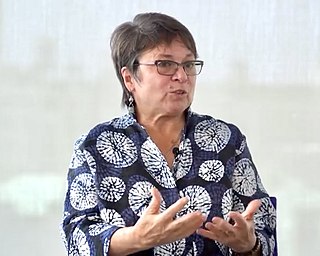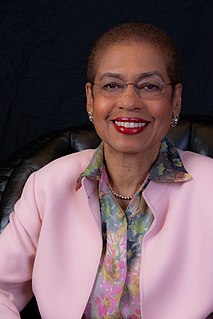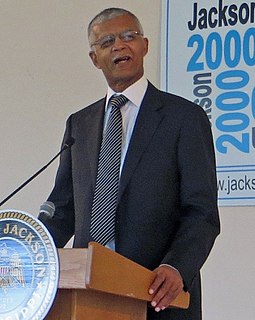A Quote by Beverly Daniel Tatum
The task of resisting our own oppression does not relieve us of the responsibility of acknowledging our complicity in the oppression of others.
Quote Topics
Related Quotes
To say that it is not our fault does not relieve us of responsibility. However, we may not have polluted the air, but we need to take responsibility, along with others, for cleaning it up. Each of us needs to look at our own behavior. Am I perpetuating and reinforcing the negative messages so pervasive in our culture, or am I seeking to challenge them?
...God has made provision for our holiness. Through Christ He has delivered us from sin's reign so that we now can resist sin. But the responsibility for resisting is ours. God does not do that for us. To confuse the potential for resisting (which God provided) with the responsibility for resisting (which is ours) is to court disaster in our pursuit of holiness.
From my membership in all of these groups I have learned that oppression and the intolerance of difference come in all shapes and sizes and colors and sexualities; and that among those of us who share the goals of liberation and a workable future for our children, there can be no hierarchies of oppression.
Before making peace, war is necessary, and that war must be made with our self. Our worst enemy is our self: our faults, our weaknesses, our limitations. And our mind is such a traitor! What does it? It covers our faults even from our own eyes, and points out to us the reason for all our difficulties: others! So it constantly deludes us, keeping us unaware of the real enemy, and pushes us towards those others to fight them, showing them to us as our enemies.
Solidarity is not a matter of altruism. Solidarity comes from the inability to tolerate the affront to our own integrity of passive or active collaboration in the oppression of others, and from the deep recognition of our most expansive self-interest. From the recognition that, like it or not, our liberation is bound up with that of every other being on the planet, and that politically, spiritually, in our heart of hearts we know anything else is unaffordable.
When it comes to the discussion of oppression in America, we've been experiencing the worst of it for a long time. What's exciting to me is the prospect of going from worst to first in a forward-moving transformation which is going to take groups of dispossessed black folks here and others and make us controllers of our own destiny.
"Oppression" or "systems of oppression" operate as a shorthand terms in much writing and speaking so that we do not have to list all these systems of meaning and control each time (i.e. racism, ableism, xenophobia, etc.). I needed a term like that, but "oppression" implies a kind of top-down understanding of power that is at odds with the Foucaultian model I rely on in my work.































